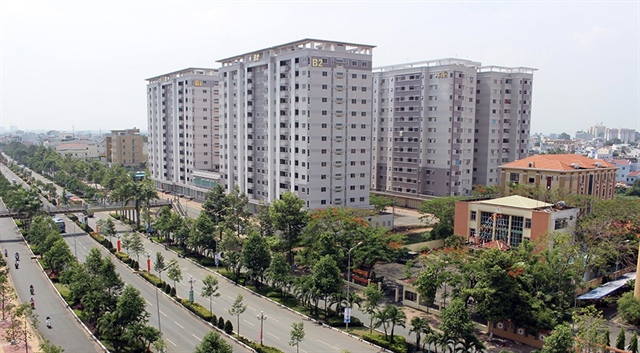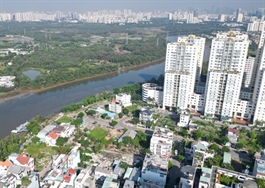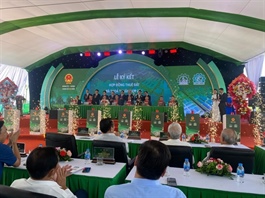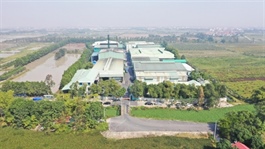New loan policy eases path to social housing for low-income groups
New loan policy eases path to social housing for low-income groups
Vietnam has lowered the interest rate on social housing loans, with VBSP at the forefront of implementation, aiming to expand affordable housing access for low-income groups.
On October 10, the Vietnamese government issued a decree amending existing legislation on policies to promote social housing development.
Under the updated policy, the preferential interest rate for loans issued specifically by the Vietnam Bank for Social Policies (VBSP) for the purchase or lease-purchase of social housing; the purchase or lease-purchase of housing for the armed forces; and for the construction, renovation, or repair of housing of VBSP customers, is now set at 5.4 per cent per year.

The new policy move is expected to bolster access to social housing |
In addition, loan agreements signed with VBSP prior to October 10 are eligible for an adjustment in their contractual terms, allowing the new 5.4 per cent interest rate to be applied retroactively to both the outstanding principal and any overdue principal (if applicable).
The reduction in interest rates marks a significant and concrete step by the Party and state in addressing the housing needs of low-income groups and ensuring social security.
The option to revise existing loan agreements reflects a humane and equitable approach, encouraging wider public participation in social housing initiatives.
This credit policy, together with land and funding mechanisms, forms a comprehensive support ecosystem, easing supply-side constraints while improving homebuyers' access to capital.
For detailed information and application procedures, customers can approach the nearest VBSP branch.
The VBSP network has actively collaborated with local party committees and government authorities to survey and consolidate demand for housing loans across eligible groups. The bank has also accelerated public awareness campaigns on the social housing loans to ensure that citizens are well-informed and able to access the support when needed.
Simultaneously, training has been conducted on loan procedures and documentation for local commune-level staff, mass organisations acting as entrusting agents, and local savings and credit groups.
This has laid the groundwork for fair and transparent beneficiary screening and disbursement, ensuring that loans are granted in compliance with regulations to those in genuine need and with qualifying conditions.
As of now, the total outstanding loan balance under VBSP's social housing programmes has exceeded approximately $781 million, with 50,328 active borrowers.
The programme covers loans for various housing-related purposes, including the purchase or lease-purchase of social housing; the purchase or lease-purchase of housing designated for members of the armed forces; and the construction, renovation, or repair of existing homes, ensuring that financial assistance is available at every stage of the housing cycle.
This initiative underscores the government's commitment to inclusive housing policies, aimed at improving living conditions and financial accessibility for millions of Vietnamese citizens.
|
The preferential credit for social housing loans is designed to support a wide range of beneficiaries, including: individuals recognized for their contributions to the revolution and relatives of war martyrs eligible for housing improvement support under the Ordinance on Incentives for People with Meritorious Service; low-income earners in urban areas; workers and labourers employed at enterprises and cooperatives both inside and outside industrial zones; commissioned officers, professional soldiers, and non-commissioned officers in the People's Armed Forces; active-duty defence workers and officials, cipher staff, and others working in cryptographic organisations receiving salaries from the state budget; government officials, public servants, and civil employees; as well as poor and near-poor households in rural and urban areas, especially in regions frequently affected by natural disasters and climate change. |
- 18:57 14/10/2025




























